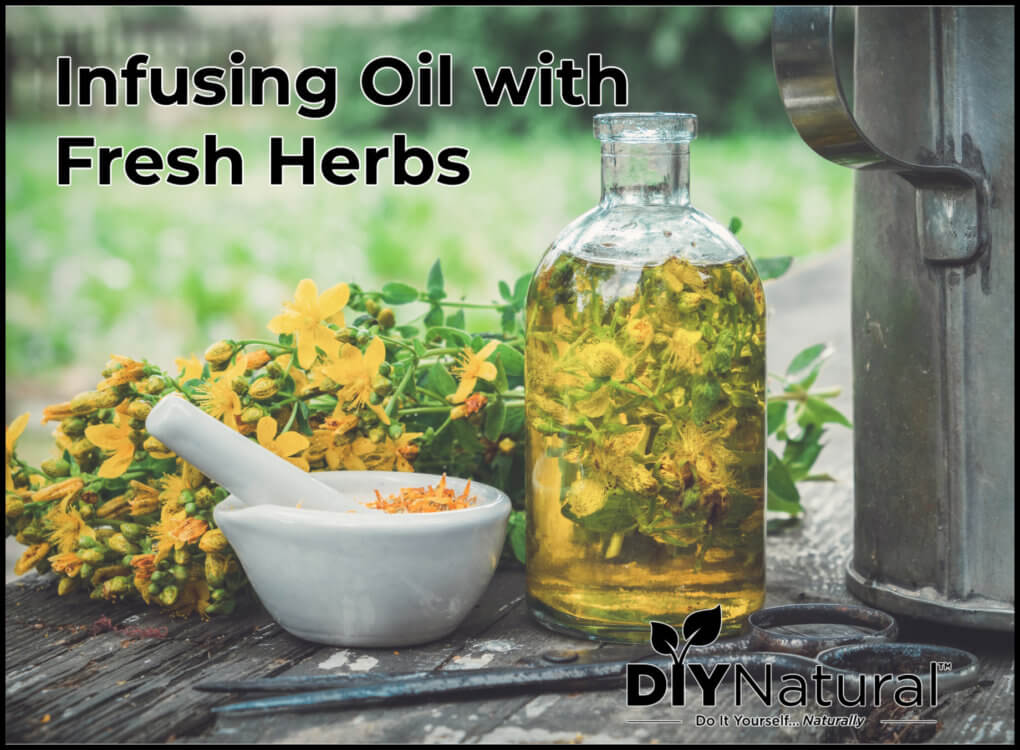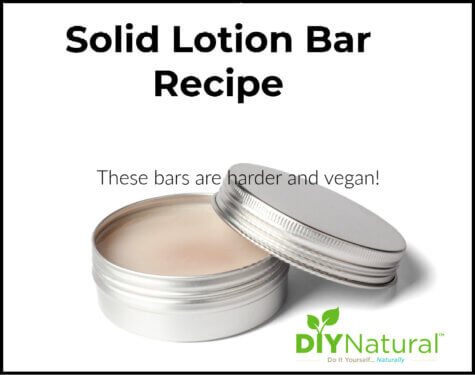
Will infusing oil with fresh herbs work? Yes! Actually, it is best to infuse some herbs when fresh while it’s best to infuse others when dry.
Everyone knows my first love is soap making. And one of the first “rules” I learned, is to never put anything fresh into oil to infuse it. But some herbs, like Jewelweed, need to be used fresh. So can you infuse fresh herbs into oil? It turns out that you can if you do it right!
Infusing Oil with Fresh Herbs
There are a few ways that you can use fresh herbs to infuse into the oil. Normally, if you use fresh herbs, there is too much moisture that can cause rot or mold. The infusion must be done in a short time and used in a few days to prevent this from happening.
Best Oils to Infuse Fresh Herbs
You can use most any type of oil to preserve your herbs, but keep in mind what you’ll be using it for. I use olive oil, sunflower oil, and rice bran oil in my soaps, so these are good choices here. I use avocado, rice bran, and coconut oils in my salves, so these would be good choices for this application. If you use coconut oil, remember that it will solidify when it gets cool unless you use fractionated coconut oil. This type will stay liquid at cooler temperatures. I would stay away from oils that break down quickly, like canola, corn, or soybean.
Best Fresh Herbs to Infuse in Oil
Most fresh herbs can be used, even those with higher water contents. Some good choices here are jewelweed, of course! Lemon balm, lavender, and chamomile are a few others. Remember that these are infused oils, not essential oils. You’ll get the active compounds, but none of the aromatic oils. You will rarely be able to capture the scent. What you really want are the constituents that help with healing, and that’s what you’ll end up with when infusing oil with fresh herbs.
Tip: learn more about the best herbs and oils to use, fresh and dry, from this Mountain Rose Herbs article.
Method 1: The Oven Method
Use a glass or stainless steel baking dish. Place your herbs in the dish and cover with oil. They don’t need to be completely covered as you’ll be stirring them around. Set your oven at a low temperature, like 200°f. Leave uncovered for 30 minutes or so. Give the herbs a good stir and leave in a bit longer. Keep stirring every 15-20 minutes. You’ll know when it’s ready because the oil will be darker in color, maybe even yellow or green, depending on your herbs. And it will have more of a scent to it. Remove the herbs and heat a bit longer. This step is important as there may be residual moisture in the bottom that needs to evaporate. When it’s done, turn off the heat and allow it to cool. Pour the oil into a jar and use it within a few days.
Method 2: The Slow Cooker Method
Use pint or quart jars. Add enough herbal material to fill the jars half full. Cover with oil. Leave the tops off. Place in a slow cooker Add water to the slow cooker pot up to the line where the oil is. Don’t get any water in the jars! Don’t cover the slow cooker. Turn on high to heat the water, then down to low. Heat the oils for a few hours. Again, as above, watch the oil. It will turn colors and/or start to smell different. When done, take the jars out of the slow cooker and place them on a towel to cool. When cool, strain into a single jar. Cover when completely cool. Use within a few days.
Method 3: The Solar Method
Use the heat of the sun to do the work for you. Place herbal material in jars and cover with oil as described above. Cover tightly. Shake a few times to distribute the herbs in the oils. Place in the sun for a day or two. Strain, but do not press down on the herbs, just let them drip. Pressing down can get moisture in the oil. This is ok if you plan to use it the same day, but can lead to mold or rot if it sits for very long. Jewelweed used in this manner seems to break down very quickly. If your oil isn’t strong enough, repeat the first few steps. I get better results with the jewelweed if I do this twice.
Use Your Oil Right Away
In all of the previous methods, you’ll need to use the oil right away. You can make a salve or an ointment with it, use it for soap or lotion, or make a facial scrub from it. Because of its sensitive nature, if you make a scrub, it should be kept in the refrigerator and used as soon as possible. Once the oil is made into soap or salve or ointment, it should be shelf-stable for as long as that product, or perhaps a bit less. I err on the side of caution and use it as quickly as I can.
Refrigerate For Longer Life
You can refrigerate your oil for a week or so if you can’t use it right away. Some oils, like olive oil, will harden in the refrigerator but will melt once out of the cold. You can also freeze your oils. I freeze mine in ice cube trays, pop the cubes out and place them in a freezer-safe container. That way I can take out just what I need and leave the rest frozen. Alternatively, you can freeze the oils in a cake pan, take them out and break it up into smaller pieces. Then place in a cold-proof container. Work quickly if you do this because the oils will melt fast!
Bonus: Fresh Carrot Soap
This is a good application for fresh fruits or vegetables. Yes, that’s what I said! I make a carrot soap that I’ve been afraid to before because I’d originally been told that it would rot. Using this method, I was able to not only capture the bright color of the carrots, but also the healing power of the beta carotene contained in the carrots. I used shredded carrots and then applied the slow cooker method. A few hours later I had a bright orange oil! It doesn’t work with everything though. I tried beets, and while I had the deep purple color and even some of the earthy scent, it turned a yellow-gray in cold process soap. Well, on to the next project!
Have you infused fresh herbs in oils? Tell us what you think!
*******



